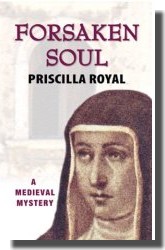


1481988 Curiosities served
Memories and History
Previous Entry :: Next Entry
Read/Post Comments (7)
 Some months back, I went out for the morning paper, took a deep breath, and was transported to 1948, Winthrop WA, where the sharp autumn air was warmed with bacon-scented smoke from wood burning stoves. That was 60 years ago.
Some months back, I went out for the morning paper, took a deep breath, and was transported to 1948, Winthrop WA, where the sharp autumn air was warmed with bacon-scented smoke from wood burning stoves. That was 60 years ago.
Yesterday, I remembered my mother telling me how her family gathered together after dinner in Getchell WA, now a ghost town. My grandmother played the beat-up piano, my grandfather a guitar, and they all sang tunes from the Civil War. That was 1908. That was 100 years ago.
These may be my memories, but everyone has them. They are our DNA. They are alive. They are also history.
Whenever anyone says history is boring, I do understand. It’s become a date, some treaty, too many wars, and the names of people who are frozen in one act as if that is all they ever were. They weren’t—unless we think most of us are also defined by one brief episode in our own lives. Luckily, I came to love history because I learned it first as family stories. If people born in the early 1800s could be three-dimensional, it wasn’t a big leap to realize the same was true of those 600, 1000, 3000 years ago.
That is why I came to write historical fiction.
Prioress Eleanor and Brother Thomas like to remind me that they may never have existed but they speak for those who did. The pair are passionate, grieved, thoughtful, both right and wrong in their actions, and they enjoy music or a shimmering drop of water on a rose petal. They spoke a language in the late thirteenth century even Chaucer would need translated, their knowledge of medicine is often primitive, and the symbols they use to define their world are as colored by the beliefs of their era as our own. Yet they also love to demonstrate that people did come to conclusions we would consider “enlightened and modern”, even if their manner of expressing the ideas is archaic. Not all of their medical practices were as barbaric as we have assumed either, and, yes, they were much cleaner than we often imagine.
As an author of historical mysteries, I may have the right to make their speech comprehensible, but both would rebel if I tried to make them no different than guests at a 2008 costume party. They reserve the right to surprise me with their insights (just as the primary sources of the era often do), but they also remind me that they must prevail if I disagree with their viewpoints or ways of coping with their very human difficulties. Sometimes I’m more like a playwright, faced with actors who differ on elements of a character, and have learned it is often wiser to listen to those who must give muscles and nerves to dialogue written on thin paper. My books may be whodunits, but there is no mystery about who ultimately wins these arguments: Prioress Eleanor and Brother Thomas.
So, like any family, my characters and I may fight and snip, but we love each other. As any flesh and blood ancestors do, they have their stories to tell, and I happily record them. And like people in the tales my mother told, they reach out with a warm touch and remind me that history is, after all, still about kin—just a bit farther back in the past than my limited memory.
--Priscilla Royal
Read/Post Comments (7)
Previous Entry :: Next Entry
Back to Top

